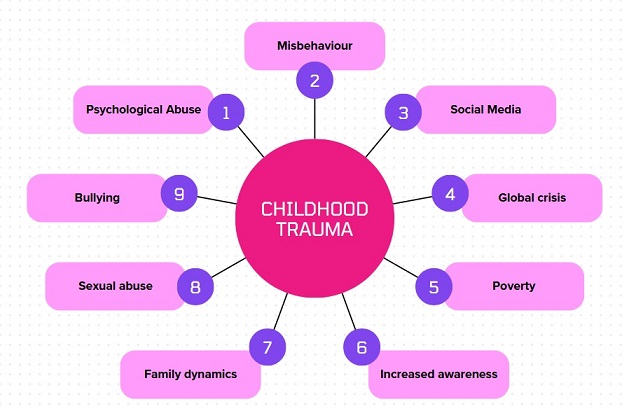
The journey of parenthood is one of the most transformative experiences in life, marked by profound joy, challenges, and responsibilities. This journey begins with pregnancy, continues through childbirth, and evolves as children grow. At each stage, support—emotional, physical, and practical—is crucial for the well-being of both parents and children. Assistance during these periods not only strengthens familial bonds but also ensures healthier outcomes for all involved.
The Significance of Help During Pregnancy
Pregnancy is a delicate and transformative phase in a woman’s life. While it is a time of anticipation and hope, it can also bring physical discomfort, emotional fluctuations, and lifestyle adjustments. Receiving help during this period is vital for the mother’s health and the baby’s development.
- Physical Support: Pregnancy often brings challenges such as morning sickness, fatigue, back pain, and hormonal changes. Support from family members, partners, and friends can help an expecting mother manage these challenges. For example, a partner’s assistance in household chores or preparing nutritious meals can reduce the physical strain on the mother, allowing her to focus on her well-being.
- Emotional Support: Pregnancy can be an emotional rollercoaster due to hormonal fluctuations and anxiety about the future. Having a supportive partner, family, or close friends to share worries and joys can alleviate stress. Emotional support also plays a crucial role in preventing prenatal depression, which can affect both the mother and the developing baby.
- Professional Support: Guidance from healthcare providers, such as obstetricians, midwives, and dietitians, ensures the mother receives proper prenatal care. Joining prenatal classes or support groups can also help mothers-to-be connect with others undergoing similar experiences, fostering a sense of community and understanding.
- Cultural and Societal Support: In many cultures, pregnancy is considered a communal experience, with traditions and rituals that involve extended family and community members. These practices not only provide practical help but also create an emotional safety net for the mother.
The Importance of Help During Childbirth
Childbirth is one of the most intense experiences a woman can go through, both physically and emotionally. It requires robust support systems to ensure the safety and comfort of the mother and the newborn.
- Medical Assistance: The role of healthcare professionals during childbirth is indispensable. Doctors, midwives, and nurses provide medical expertise to ensure a safe delivery. Their support helps manage complications, administer pain relief, and monitor the baby’s and mother’s health.
- Partner and Family Support: The presence of a trusted partner or family member during labor can have a calming effect. They provide emotional encouragement, advocate for the mother’s preferences, and help create a positive birthing experience. Research shows that women who feel supported during childbirth are more likely to have better postpartum outcomes.
- Doulas and Birth Coaches: Doulas are trained professionals who provide non-medical support during childbirth. Their role includes offering comfort measures, emotional support, and information about the birthing process. Studies suggest that having a doula present during labor can reduce the need for medical interventions and improve maternal satisfaction.
- Community and Social Systems: Societal support during childbirth extends beyond the delivery room. Policies such as paid maternity leave, paternity leave, and access to affordable healthcare enable parents to focus on their well-being and the care of their newborn without undue stress.
The Role of Help in Raising Children
The challenges of parenting do not end with childbirth; in fact, they multiply as children grow. From sleepless nights with a newborn to guiding a teenager through life’s complexities, parenting is a demanding, lifelong commitment. Help and support during this journey are essential for raising well-rounded and happy children.
- Shared Parenting Responsibilities: Raising children is not a one-person job. Sharing responsibilities between partners ensures that both parents can contribute to the child’s upbringing while also maintaining their personal well-being. This division of labor helps prevent burnout and creates a balanced family dynamic.
- Extended Family Support: Grandparents, aunts, uncles, and other extended family members often play a significant role in child-rearing. Their involvement can provide additional layers of care, introduce children to family traditions, and alleviate the parents’ workload.
- Community Involvement: Communities that foster a supportive environment for families can make a significant difference. Programs such as parent groups, childcare services, and educational workshops offer resources and a sense of belonging to parents navigating the challenges of raising children.
- Professional Guidance: Pediatricians, teachers, and child psychologists are invaluable in guiding parents through the developmental stages of a child’s life. Regular health check-ups, developmental assessments, and counseling ensure children’s physical and emotional needs are met.
The Psychological Benefits of Support
The psychological well-being of parents directly impacts their ability to nurture their children. Support systems alleviate stress, build confidence, and enhance parenting skills. For example:
- Reducing Parental Stress: Parents who receive help are less likely to feel overwhelmed by the demands of childcare. Lower stress levels enable them to focus on creating a nurturing environment for their children.
- Improving Parent-Child Relationships: Support allows parents to spend quality time with their children without the constant worry of unmanageable tasks. This fosters stronger emotional bonds and promotes a child’s sense of security.
- Building Confidence in Parenting: Access to advice and resources reassures parents that they are making informed decisions. Confidence in parenting leads to better decision-making and a more positive outlook on challenges.
The Societal Perspective
Support for pregnancy, childbirth, and child-rearing is not only a family matter but also a societal responsibility. Policies and cultural attitudes towards parenting significantly influence the quality of support available.
- Workplace Policies: Paid parental leave, flexible work schedules, and on-site childcare facilities empower parents to balance their professional and personal lives effectively.
- Access to Healthcare and Education: Universal healthcare, affordable childcare, and quality education systems ensure that all families, regardless of socioeconomic status, receive the resources they need to thrive.
- Social Acceptance: Societal attitudes towards shared parenting, single parents, and diverse family structures play a crucial role in creating an inclusive environment for raising children.
Challenges in Accessing Support
While the importance of support is undeniable, not all families have equal access to it. Socioeconomic disparities, lack of healthcare access, and cultural stigmas can hinder parents from receiving the help they need. Addressing these barriers is crucial for fostering healthier families and societies.
- Economic Inequality: Low-income families often struggle to afford essential services such as childcare and healthcare. Government programs and community initiatives can bridge these gaps by providing financial and logistical support.
- Cultural Barriers: In some cultures, asking for help is seen as a sign of weakness. Breaking down these stigmas through education and awareness can encourage parents to seek and accept assistance.
- Geographical Constraints: Families in rural or remote areas may face challenges accessing healthcare and support networks. Telemedicine, mobile clinics, and online parenting resources can mitigate these issues.
Conclusion
The importance of help during pregnancy, childbirth, and the upbringing of children cannot be overstated. Support systems not only enhance the physical and emotional well-being of parents but also contribute to the healthy development of children. By fostering a culture of support—through family involvement, professional guidance, and societal initiatives—we can ensure that every family has the resources they need to thrive. Ultimately, supporting parents is an investment in the future, as it lays the foundation for nurturing compassionate, resilient, and capable individuals who will shape our world.

